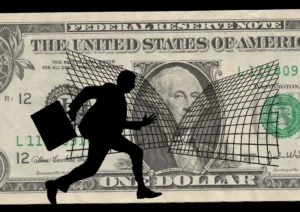In a prepared statement, Principal Deputy Assistant Attorney General Richard E. Zuckerman said, “Fraudulent tax return preparers harm taxpayers, legitimate businesses, and the American public.”
Americans are in the midst of a complicated 2019 tax season. Many are scurrying to file around the government shutdown. All Americans are filing under the new tax plan with modified tables and deduction limits.
Of course, the tax scammers are out in full force, ready to take advantage of unsuspecting citizens. Each year, the Internal Revenue Service (IRS) publishes a consumer alert that warns citizens about the latest tax scams and IRS fake calls.
This year is no different. Next, are the IRS tax fraud scams hitting Americans this year and advice on how to report IRS fraud.
What Are Tax Scammers After?
Most tax scammers are after your money. Other times, your identity is at risk. In both instances, scammers reach out to you, posing as the IRS or agencies acting on their behalf.
Scam 1: Tax Scams for Money
Thieves create a plausible situation that looks as though you owe the IRS money. Often, they pose as collection agencies acting on behalf of the IRS. They provide directions for sending the refund you supposedly owe.
Of course, you’re actually sending the refund to them and not the IRS. They may threaten legal action or threaten to put some kind of hold on your social security number.
Scam 2: Identity Theft Scams
Another scam may be to steal your personal information for identity theft. They use fake tax preparation phone numbers and websites. When unsuspecting people go online to file an e-tax return, they click on one of these fake sites.
The site looks legitimate, but it isn’t. Scammers then use your personal information to commit identity theft and other types of fraud.
Scam 3: Fake IRS Calls
Most of the time, the scam shows up as an automated phone message. The incoming number looks real enough, even on your caller ID. The message instructs you to call back to pay a phony tax bill.
These IRS impersonation telephone scams target taxpayers, including recent immigrants. The callers (or recorded message) claims to be an IRS employee. He or she uses a fake name and provides a bogus IRS identification badge number.
Scammers tell victims they owe the IRS money and that they must pay it right away. They can do so through a gift card or wire transfer.
During this call, victims often receive threats of suspension of their driver’s license, arrest, or deportation. The caller often becomes volatile and insulting.
Sometimes, victims are told the opposite, that they have a refund. Those are the cases where they want to steal your personal information. If you don’t return their messages, you often receive several “urgent” call-back requests.
These scammers don’t just go after the general taxpayer. They go after special groups, such as the hard-of-hearing and those with limited English language skills.
Scam 4: Scams Using Video Relay Services
Some thieves use video relay services (VRS) to scam people who are deaf or hard of hearing. VRS enables deaf and hard of hearing people to conduct telephone conversations with hearing people.
An interpreter uses a videophone to relay the conversation between the two parties. VRS interpreters do not screen calls for validity. Thus, you shouldn’t trust the call because it’s made through VRS.
Beware of Limited English Skills
Victims with limited English language proficiency often receive fake IRS calls in their native language. They are threatened with deportation, arrest, and license revocation.
Remember that the IRS will never call you to demand money. And they never demand payment using prepaid cards, credit cards, or wire transfers.
Nor will they ever threaten to bring in law enforcement or impose other penalties. Finally, there is an appeals process. A legitimate conversation with an IRS representative will always include that option.
How to Report IRS Fraud
Never discuss your personal tax issues through any message, written or otherwise, that came to you unsolicited. Here’s how you can report possible IRD tax fraud schemes.
How to Report a Scam Number
If you receive an IRS tax fraud call, here’s what you need to do. First, never return a phone call from someone who claims they are from the IRS.
To verify, call the IRS directly, and do not use the number left on your voicemail. The IRS direct line is 800-829-1040. If you are a business, call 800-829-4933.
How to Report Suspicious Email
If you receive an email that seems suspicious, do not reply to the email or click on any links contained within it. You can forward the email to the IRS at [email protected].
You can also report fraudulent email and websites through the IRS’s Phishing web page.
If You Suspect You Are a Victim
If you think you have fallen victim to a scam, you should report fraud to the Treasury Inspector General for Tax Administration (TIGTA) as soon as possible. You can access the IRS Impersonation Scam Reporting online form to do so.
Fill in the fields to enter the needed information. If you have questions, call TIGTA at (800) 366-4484.
The IRS also provides instructions, including which form to complete according to the type of fraud committed. The forms ensure you send specific information, such as who you are reporting and the type of activity (email, phone, etc.).
You will specify when you discovered this fraudulent activity and the amount of money, if any, involved.
Further Reading: Do you know the difference between tax fraud and tax negligence?
Do Your Part and Report Tax Fraud Scams
Remember, the IRS will never call and threaten you with legal action if you don’t pay. Will the IRS call you about a lawsuit?
No, nor will they threaten jail time, deportation, or suspension of your business license. Any calls you may receive like that are tax scams.
This article shows you how to report IRS fraud. Even if you recognize the scam and don’t fall victim to it, report it anyway. Reporting matters.
The Justice Department, Treasury, and IRS are always working to reduce these fake tax schemes. The more detailed information you provide, the stronger their investigation can be.
If you have any further questions, please contact us for a free consultation.




